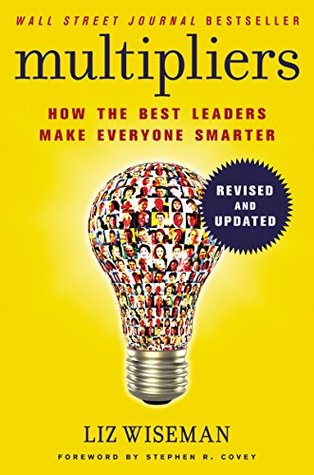More on this book
Community
Kindle Notes & Highlights
by
Liz Wiseman
Read between
June 19, 2018 - March 5, 2019
that may cause catastrophic failure and “sink the ship.” Creating a clear “waterline” for your team will give them confidence to experiment and take bolder action but will signal to them to be extra diligent where the stakes are high. This distinction will also signal to you when you can stand back and when you need to jump in and rescue.
Richard is a master of the Gotcha: he only asks questions that he knows the answer to. He asks questions to test other people’s knowledge and to make sure other people understand his point of view. One of his vice presidents said, “I can’t think of a single time that he has asked a question when he didn’t know the answer.”
talented people don’t stay long in this organization. Some are asked to leave when the founder finds out they aren’t as smart as he’d like. Others “quit and stay,” giving up on the idea of making a meaningful contribution. The sharpest people leave because they see the wasted time and talent and know the organization can’t grow beyond its founder. Although the company has been able to grow sales under Richard’s leadership, most believe that the organization is inherently limited. They remark, “We’ll never become a serious company.”
Deeply embedded in Richard’s logic is the assumption: I need to have all the answers. He sees this as the essence of his job as leader. And if he doesn’t know the answers, he needs to either find them himself or appear to know the answers. What does he do when he doesn’t have the answer? He stalls until he can find it. He buys a book on it. He reads the operations manual. He googles the answer. He assumes his role is to know and to be the expert. It is an assumption that may have become entrenched in the years he studied expert systems. If a leader holds the assumption that it is their role to
...more
If leaders have to spread their intelligence across asking the questions and finding all the answers, they tend to ask questions they already know the answers to. Once a leader accepts that he or she doesn’t have to have all the answers, he or she is free to ask much bigger, more provocative, and, frankly, more interesting questions. They can pursue things they don’t know how to do.


